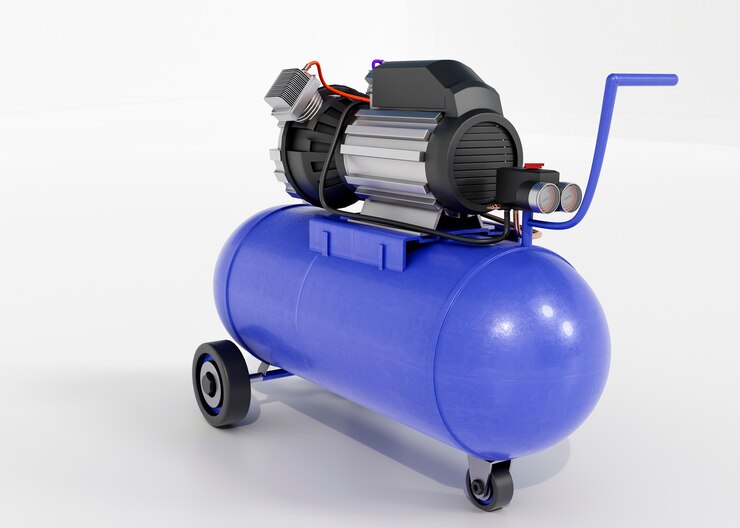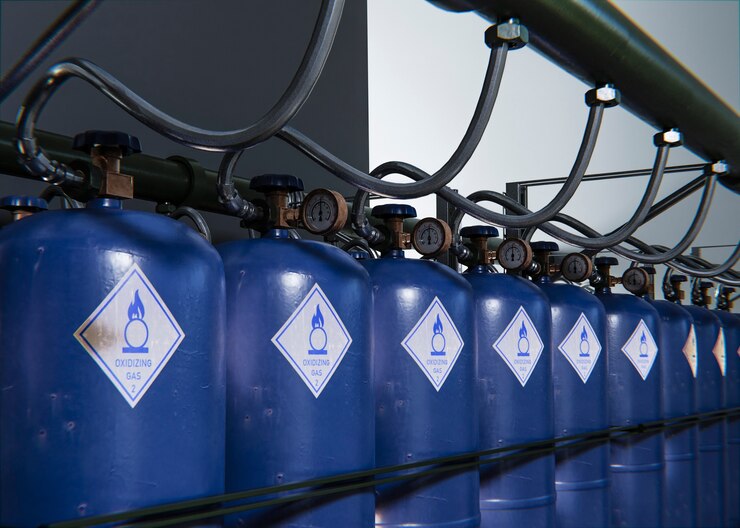Hydrogen Purification Screw Compressor: Everything You Need to Know in 2024
Hydrogen, the least heavy element is increasingly being seen as a cleaner energy carrier. It is an essential factor for reducing carbon emissions since its combustion results in only water vapor; unlike fossil fuels. Despite this, it’s not that simple because hydrogen demands a certain level of purity for its different uses. This is not possible with a hydrogen purification screw compressor.
It is important to purify hydrogen to ensure safe and efficient operation in such areas as fuel cell electric vehicles and industrial processes. Hydrogen compression using screw compressors appears to be one of the most interesting technological options especially when high purities are required. In this article, you will read about hydrogen screw compressor design, working principles, and benefits in the emerging hydrogen economy.
Hydrogen As A Clean Energy Source
Hydrogen is the most simplest and abundant element with great potential as a clean energy carrier. When combusted, it forms water vapour alone unlike fossil fuels which generate greenhouse gases at the point of use. Technology related to this makes it fundamental in realizing ambitious decarbonization plans.
Unlocking hydrogen’s potential hinges on sector coupling. Traditionally, the different energy-related sectors such as electricity, transportation, and industry have been operating independently.
The aim of sector coupling is to link these divisions up so that clean power can be exchanged between them. Hydrogen acts as a flexible carrier that helps store and transport renewable energy generated from sources such as solar and wind.
For instance, the surplus electricity from green sources can undergo an electrolysis process known as the splitting of water molecules into hydrogen and oxygen. Green hydrogen can then be kept, transported, or used for other purposes:
Transportation: As an alternative to gasoline-powered cars, fuel cell electric vehicles (FCEVs) are driven by hydrogen gas.
Industry: High-temperature industrial processes including steel production and ammonia synthesis could start using hydrogen instead of fossil fuels.
Power generation: During peak demand hours, gas turbines running on hydrogen can produce electricity.
However, there are numerous infrastructure challenges hindering the establishment of a strong hydrogen economy. Solar capacity or any other renewable source capable of producing green hydrogen via electrolysis is a large-scale operation requiring substantial investment in both time and resources; meanwhile, efficient methods must also be developed to store or transport this gas safely; constructing network pipelines such as specialized storage facilities creates a huge technical complexity and economic challenge indeed.
Hydrogen Compression Technologies
But despite its advantages inherent in that characteristic low density issues arise making effective utilization difficult if not impossible without compression thus giving rise to many different compressor technologies used for handling H2 compressed:
Reciprocating Compressors:
These compress gasses through pistons moving within cylinders that are reciprocated.. Their suitability lies in achieving very high discharge pressures, such as in long-distance pipelines. However, because of their complexity which is evident by multiple moving parts, they need more maintenance and are less efficient than others.
Diaphragm Compressors:
These compress gasses by means of a flexible diaphragm which can be made to move. Some good examples include low-pressure applications where there is a need for the highest flow rates per unit volume. In general, the diaphragms are made from special materials to handle hydrogen as well as minimize its permeation; on the other hand, these units have limited pressure capabilities compared with reciprocating compressors.
Screw Compressors:
These use meshing helical rotors for gas compression purposes. For hydrogen applications, they have several advantages:
Oil-free operation: Fuel cells require clean air; hence screw compressors operating without oil present no risks of contamination.
High efficiency: From low to high loads, screw compressors offer a higher level of efficiency which leads to less energy consumption.
Compact design: These new designs occupy less space than their competitors like piston-type machines, particularly in projects like hydrogen fuel stations.
However, screw compressors tend to operate at lower pressure differentials relative to reciprocating ones do but when it comes to achieving high compression ratios for H2 multi-stage may require additional steps. On top of this maintaining proper bearing clearances and sealing against leakage across an oil-free machine are some challenges associated with this type of technology due to running on hydrogen gas alone.
Hydrogen Purification Screw Compressors
Hydrogen Purification Screw Compressor are a special type of machinery that can support clean hydrogen production. Here’s a closer look at the technical aspects:
Operations:
Low Differential Pressures: Unlike natural gas pipelines, hydrogen applications often require moderate pressure increases. Screw compressors have an advantage in this range as they achieve efficient compression at less energy consumption compared to high-pressure reciprocating compressors.
High Circumferential Speeds
To compensate for the lower pressure differentials, hydrogen screw-compressors operate at higher rotor speeds. This ensures enough flow rates for a light gas. However, careful design is crucial to manage noise levels and bearing wear associated with high speeds.
The Oil-Free Imperative:
Contamination is a big issue when dealing with hydrogen, especially fuel cells. Even tiny amounts of oil can significantly degrade performance and life expectancy of fuel cells hence oil-free operation is key. This requires certain design considerations:
Bearing Distances:
Oil-free bearings must be designed so that they possess minimum clearance that reduces friction through specialist coatings or dry running techniques. The challenge here is posed by differences in thermal expansion between the rotor and bearing materials.
Sealing Gas:
In order to prevent leakage of H2 and keep the compression chamber clean, sealing gas (usually nitrogen) is applied. Thus, choosing and managing it should be done properly in order to sustain efficiency while minimizing risks of contamination.
Frequency Inverters
The demand for hydrogen varies depending on its application most times. Frequency inverters are very important in ensuring maximum efficiency under such conditions where rates fluctuate by adjusting motor speed according to real flow rate required reducing energy consumption compared to fixed-speed operation greatly.
Isothermal Compression
The process of compression always generates heat that may result in formation of undesired by-products and reduce purity level of hydrogen. Isothermal compression aims at minimizing it this temperature rise thus injecting cooling media (mostly water) during the compression controls the temperature rise leading to a cleaner and stable product of hydrogen.
Advantages of Hydrogen Purification Screw Compressor
Hydrogen cleansing screw compressors have various technical advantages that reflect in operational benefits such as:
Application Specific Design: These machines can be customized for certain processes that use hydrogen. In this case, there is no need for intricate adjustments hence reducing installation and maintenance complexity.
Decreased Labor Requirements: The simplified design and improved efficiency of these systems reduce the costs of maintaining them unlike the mechanical compressors. This means lower labor costs and increased productivity.
While primarily designed to operate with hydrogen, these screw compressors can also be used with other process gases involved in sector coupling applications. Several inherent advantages like oil-free operation and high efficiency make them a good choice for:
Biogas Upgrading: This is the elimination of impurities such as carbon dioxide from biogas thereby creating clean biomethane fuel source.
Chemical Production: They are responsible for compressing different types of gas utilized in industries like ammonia synthesis or hydrogenation reactions.
Carbon Capture and Storage (CCS): Transportation and compression of captured CO2 for safe storage.
This ability adds value to the proposition done by hydrogen purification screw compressors to fit in a wider context within cleaner transition energy.
Design and Manufacturing Considerations
The Choice between Roots and Lobes Compressors
Roots Blowers vs. Rotary Lobe Compressors for Process Gas Applications:
Unlike the rotary lobe compressors, Roots blowers have more basic two-lobed rotors which operate at a lower efficiency, but they are highly effective in handling significant flow rates at low pressures.
Rotary Lobe Compressor as against Roots Blower: More elaborate multi-lobed impellers that support higher efficiencies with respect to pressure ratios as well as pressure ranges than typically observed in the former type. However, for hydrogen purification applications, the latter is commonly used because it has a better ratio of work done to heat transfer during compression.
Compact Design and Cost Optimization
Compactness is a key requirement for hydrogen purification screw compressors especially where there is limited space such as fueling stations. To this end, producers have strived to optimize assembling concepts by minimizing components’ numbers while simplifying installation procedures thereby reducing overall costs.
Customer-Specific Adaptations and Gas Compatibility
Making sure that the compressor can be adjusted to meet customer-specific needs is important. Manufacturers often make provisions for different flow rates, pressure ratios and material qualities required in different hydrogen related applications. In addition, it should function with various process gases met in sector coupling projects thus maximizing its flexibility.
Importance of Supplier Expertise
Having hydrogen purification screw compressors’ correct supplier is important. There is a need for deep technical expertise in compressor design, material selection and understanding of hydrogen compatibility. Besides, having international networks with suppliers helps to simplify procurement and ensure timely delivery of components. Additionally, there must be a responsiveness by the provider to customer opinions that ensures technology is continuously enhanced and the dynamics of industry changed.
Conclusion
Hydrogen purification screw compressors are central enabling technology for a clean hydrogen economy. These compressors offer oil free, efficient compression for various hydrogen applications which makes them compelling choices. Such compressors will be highly instrumental as the hydrogen infrastructure spreads across diverse sectors by their ability to guarantee purity, reliability and cost-effectiveness of use of hydrogen at large industrial scales.
Read more: Hydrogen Gas Compressor 30 Bar – A Brief Guide(2024)



